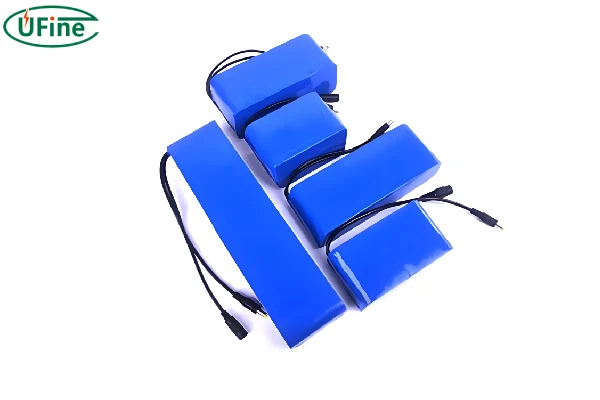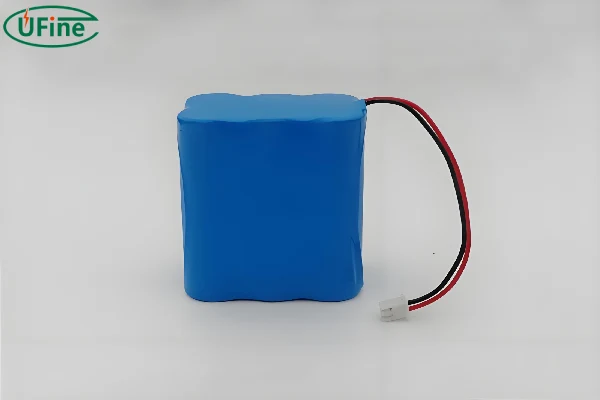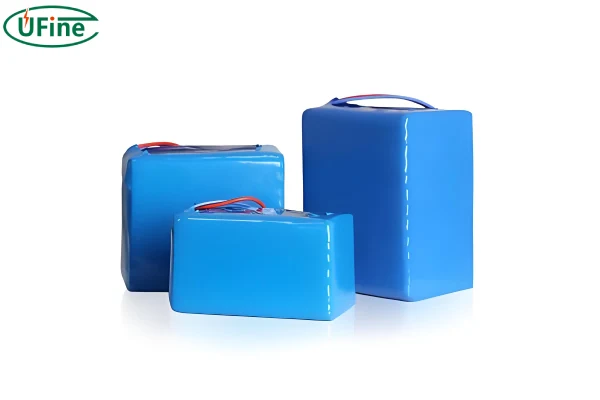
- Part 1. Small 12V battery type
- Part 2. Small 12V battery Amps
- Part 3. Small 12 volt battery applications
- Part 4. Small 12 volt rechargeable battery
- Part 5. Why choose a small 12 volt lithium battery?
- Part 6. Small 12 volt battery charger
- Part 7. How long does a small 12V battery last?
- Part 8. How do you charge a small 12 volt battery?
- Part 9. Small 12 volt battery manufacturers
Have you ever wondered about those small 12-volt batteries that power so many of our gadgets and devices? These little powerhouses are everywhere, and they’re incredibly versatile. Whether you’re running a tiny toy car, a portable speaker, or even a backup system for your home, small 12V batteries are essential. In this guide, we’ll dive deep into the world of small 12V batteries. We’ll cover everything from their types and common applications to how to charge them and their lifespan. Ready to become a battery expert? Let’s get started!
Part 1. Small 12V battery type
First things first, let’s talk about the different types of small 12V batteries. Each type has its own unique features and ideal uses. Here are the main ones you’ll come across:
- Lead-Acid Batteries: These are probably the most common type of small 12V batteries. They are reliable and relatively inexpensive. You’ll often find them in cars, motorcycles, and backup power systems. Lead-acid batteries are known for their ability to deliver a high surge of current, which is perfect for starting engines.
- Lithium-Ion (Li-Ion) Batteries: These are the rock stars of the battery world right now. Lithium-ion batteries are lightweight, have a high energy density, and last longer than most other types. They are commonly used in portable electronics like laptops, smartphones, and even electric vehicles. The downside? They can be a bit pricier compared to other types.
- Nickel-Cadmium (NiCd) Batteries: Known for their durability and ability to perform well in extreme temperatures, NiCd batteries are often used in power tools and medical equipment. However, they have a memory effect, meaning their capacity can decrease if they are not fully discharged before recharging.
- Nickel-Metal Hydride (NiMH) Batteries: These batteries are a more environmentally friendly option compared to NiCd batteries. They have a higher capacity and are commonly used in consumer electronics and hybrid vehicles. NiMH batteries don’t suffer from the memory effect as badly as NiCd batteries.
Part 2. Small 12V battery Amps
Alright, let’s talk about amps. The ampere-hour (Ah) rating tells you how much charge a battery can hold. Think of it like the size of your car’s gas tank—the bigger it is, the longer you can go before needing a refill. Here are some common amp ratings for small 12V batteries:
- 1Ah to 5Ah: These are used in small gadgets and backup power supplies. For example, you might find a 2Ah battery in a small portable fan or a 5Ah battery in a compact emergency light.
- 5Ah to 20Ah: Batteries in this range are ideal for larger devices like scooters, small solar power setups, and even some larger toys. A 10Ah battery, for instance, might be used in a kid’s ride-on car.
- 20Ah and above: These are heavy-duty batteries used in electric vehicles, boats, and large backup systems. If you’re setting up a solar power system for your home, you’ll likely be looking at batteries in this range.
Part 3. Small 12 volt battery applications
Small 12V batteries are incredibly versatile and can be found in a wide range of applications. Here are some of the most common uses:
- Automobiles: One of the most well-known uses is in cars. Small 12V batteries are used to start the engine and power the vehicle’s electrical systems. You’ll also find them in motorcycles, ATVs, and even some lawnmowers.
- Portable Electronics: From portable speakers to handheld gaming consoles, small 12V batteries are a key power source. They provide the mobility and convenience that these gadgets require.
- Medical Devices: Many medical devices, such as portable oxygen concentrators and defibrillators, rely on small 12V batteries. Their reliability and portability are crucial in these life-saving applications.
- Solar Power Systems: Small 12V batteries are often used to store energy from solar panels. This stored energy can then be used to power homes, cabins, or even RVs when the sun isn’t shining.
- Emergency Backup Systems: In case of power outages, small 12V batteries can provide backup power for critical devices like alarm systems, communication equipment, and emergency lighting.
Part 4. Small 12 volt rechargeable battery
Rechargeable batteries are super handy. Let’s take a closer look at the common types of small 12V rechargeable batteries and their characteristics:
- Lead-Acid Rechargeable Batteries: These are the workhorses of the battery world. They are robust and reliable, with a long lifespan if maintained properly. However, they are quite heavy and not the best choice if weight is a concern.
- Lithium-Ion Rechargeable Batteries: These are the go-to for modern portable electronics. They are lightweight, have a high energy density, and can hold a charge for a long time. Lithium-ion batteries also charge faster than other types, making them very convenient.
- NiCd Rechargeable Batteries: These batteries are known for their durability and ability to handle extreme conditions. They are often used in professional power tools and medical equipment. However, they do have a memory effect, which can reduce their capacity over time if not properly managed.
- NiMH Rechargeable Batteries: These batteries offer a higher capacity than NiCd batteries and are more environmentally friendly. They are commonly used in consumer electronics and hybrid vehicles. NiMH batteries don’t suffer from the memory effect as badly as NiCd batteries.
Part 5. Why choose a small 12 volt lithium battery?
So, why choose a small 12V lithium battery? Here are some compelling reasons:
- Lightweight: Lithium batteries are much lighter than other types, making them easier to handle and install.
- High Energy Density: They pack more power into a smaller space, which is great for portable applications.
- Longer Lifespan: Lithium batteries tend to last longer than other types, which means you’ll save money in the long run.
- Fast Charging: They charge much faster than lead-acid or NiCd batteries, so you’ll spend less time waiting and more time using your device.
- Low Self-Discharge: Lithium batteries hold their charge longer when not in use, making them ideal for standby power applications.
Part 6. Small 12 volt battery charger
Charging your small 12V battery correctly is crucial for its longevity and safety. Here are some common types of chargers you might come across:
- Trickle Chargers: These chargers slowly charge the battery over a long period. They are great for maintaining a charge without overcharging the battery.
- Smart Chargers: These chargers automatically adjust the charge rate and stop when the battery is full. They come with built-in safety features like overcharge protection and temperature monitoring.
- Solar Chargers: Perfect for off-grid applications, these chargers use solar panels to charge your battery. They are ideal for camping, RVing, or any situation where you don’t have access to a power outlet.
- USB Chargers: These chargers are super convenient for small batteries and can be plugged into any USB port to charge. Perfect for portable electronics.
Part 7. How long does a small 12V battery last?
The lifespan of a small 12V battery depends on its type and usage. Here’s a general idea:
- Lead-Acid Batteries: Typically last 3-5 years. However, with proper maintenance, they can last even longer.
- Lithium-Ion Batteries: These can last up to 10 years with proper care. Their longevity and efficiency make them a popular choice for many applications.
- NiCd Batteries: Generally, these last around 2-5 years. Their lifespan can be shortened if they are frequently recharged without being fully discharged due to the memory effect.
- NiMH Batteries: Usually, they last about 3-5 years. They perform better in terms of capacity retention compared to NiCd batteries and are less prone to memory effects.
To extend the life of your batteries, follow these tips:
- Avoid Deep Discharges: Try not to let the battery drain completely before recharging it.
- Store Properly: Keep batteries in a cool, dry place. Extreme temperatures can reduce their lifespan.
- Use the Right Charger: Using an incompatible charger can damage the battery.
- Regular Maintenance: For lead-acid batteries, check the water levels and clean the terminals regularly.
Part 8. How do you charge a small 12 volt battery?
Charging a small 12V battery is straightforward, but it’s important to do it correctly to ensure safety and longevity. Here’s a step-by-step guide:
- Choose the Right Charger: Make sure the charger is compatible with your battery type (lead-acid, lithium-ion, etc.).
- Prepare the Battery: If you’re charging a lead-acid battery, check the water level and top it up if necessary. Ensure the battery terminals are clean.
- Connect the Charger: Attach the charger’s positive lead (usually red) to the battery’s positive terminal (+). Then, connect the negative lead (usually black) to the negative terminal (-).
- Set the Charge Rate: If your charger allows, set it to the appropriate charge rate. For most small 12V batteries, a slow charge (trickle charge) is best.
- Monitor the Charging Process: Keep an eye on the battery while it’s charging. Many modern chargers have indicators that show when the battery is fully charged.
- Disconnect Safely: Once the battery is fully charged, turn off the charger before disconnecting the leads. Disconnect the negative lead first, followed by the positive.
Part 9. Small 12 volt battery manufacturers
When it comes to purchasing a small 12V battery, choosing a reputable manufacturer is crucial.
Ufine Battery is a leading custom lithium battery manufacturer with an excellent reputation and rich experience in the industry. Ufine’s diverse product range includes lithium polymer batteries, lithium-ion batteries, 18650 batteries and LiFePO4 batteries, demonstrating Ufine’s specialization in custom battery solutions.
- High energy density
- Long cycle life
- Professional design, fast sample
- Custom lithium battery, perfect fit
- Complete certification, safer
If you have any more questions or need further advice, feel free to reach out.
There you have it—everything you need to know about small 12-volt batteries! From understanding the different types and their respective uses to knowing how to charge them properly and extend their lifespan, we’ve covered a lot of ground. These small but mighty batteries are integral to our daily lives, powering everything from our cars to our gadgets and even life-saving medical devices.
Remember, choosing the right type of battery for your needs and taking good care of it will ensure you get the most out of your investment. Whether you’re looking for a reliable lead-acid battery for your car or a high-tech lithium-ion battery for your latest gadget, there’s a perfect 12V battery out there for you.
Related Tags:
More Articles
Tracker Lithium Batteries: A Comprehensive Guide
Learn about tracker lithium battery types, applications, advantages, and how to choose the right manufacturer for GPS and IoT tracking devices.
8 Volt Golf Cart Batteries: Tips, Types & Lifespan
Explore 8 volt golf cart batteries, types, lifespan, and maintenance tips. Find out which battery suits your cart best in 2026.
What Is the Charge Voltage of the AGM Battery?
Discover the ideal charge voltage for AGM batteries. Ensure optimal performance and longevity. Learn more about maintaining your battery today!
Bad Battery Cell Symptoms: How to Tell If a Battery Cell Is Dead
Learn how bad battery cells behave, how to test them, and when replacement is the safest option.
18650 Maximum Capacity in 2026: What’s Real and What’s Hype?
Discover the real 18650 battery capacity limits in 2026, top high-capacity cells, and how to avoid fake claims.





